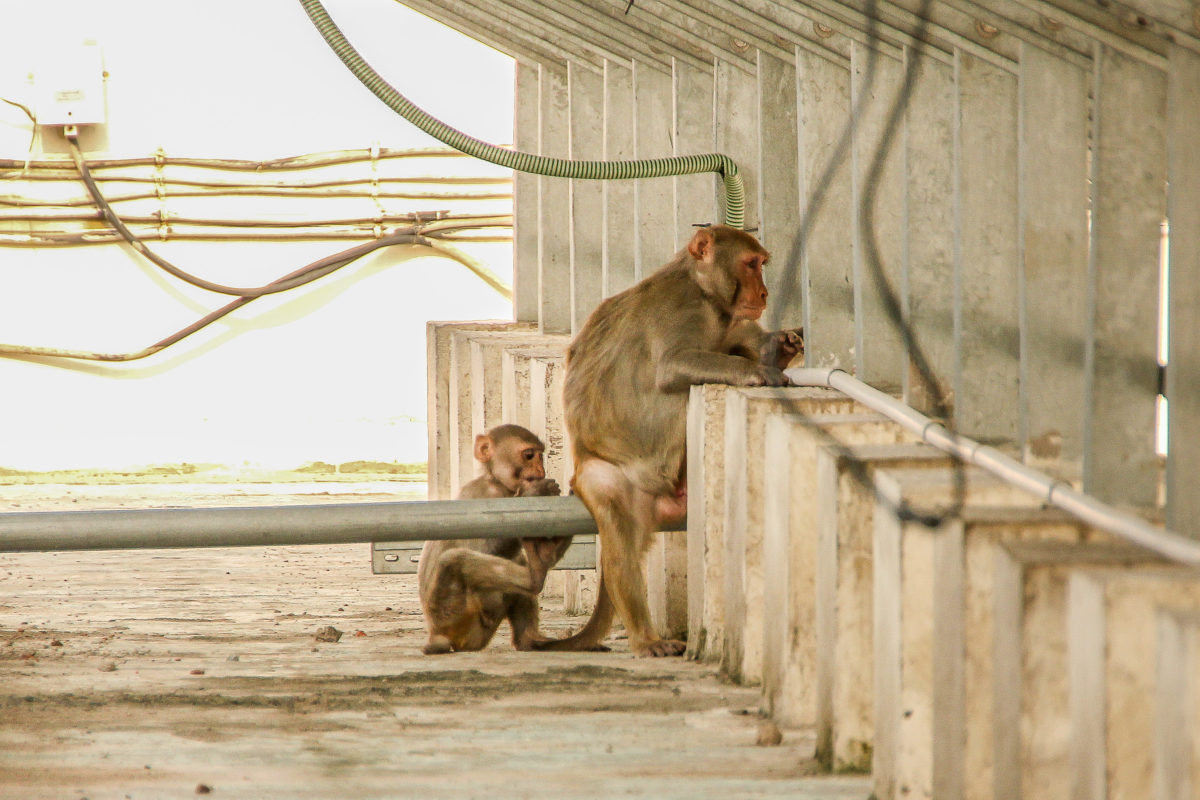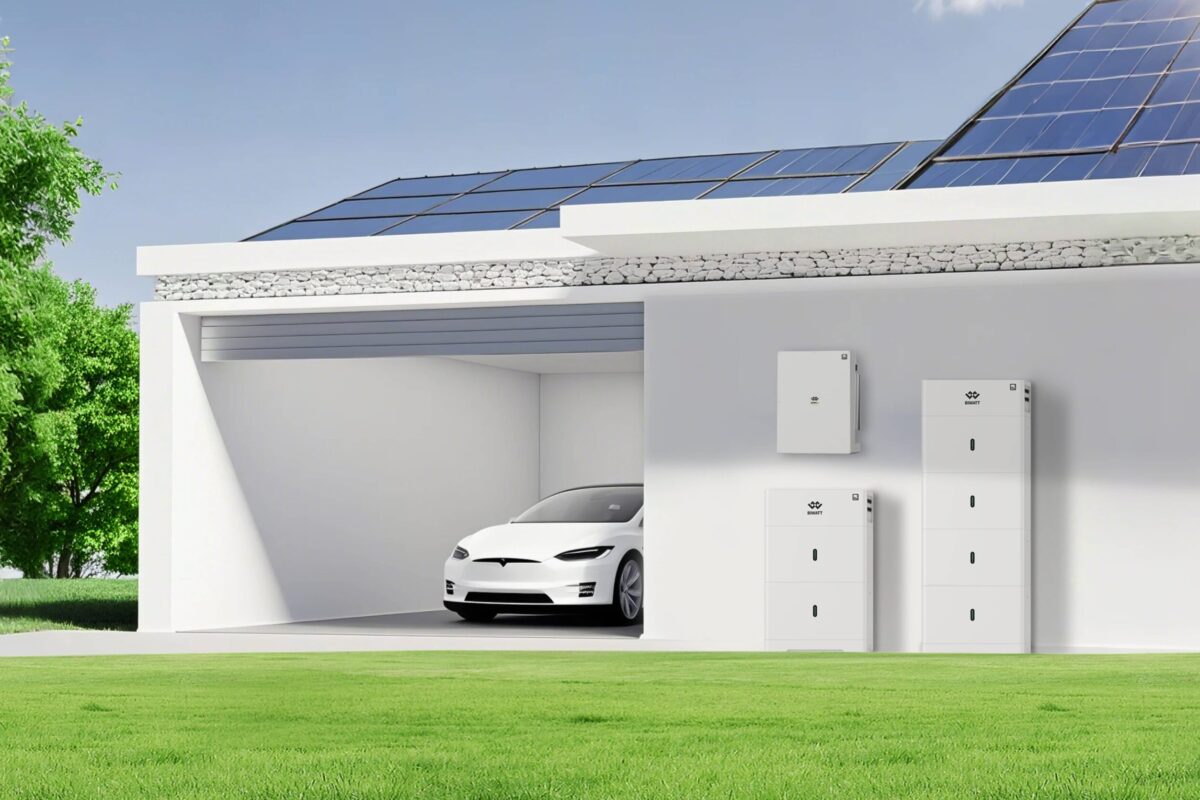A new report from German PV risk management company PI Berlin has exposed the flip side of the race to the bottom on solar system costs in India.
The Pilot Study on Quality Aspects of PV Power Plants in India, published today, exposes serious concerns about project development in one of the world's biggest – and cheapest – solar markets.
Amid revelations on how PV cabling can make a tasty treat for monkeys, installers walk across modules and the existence of a serious gap in the Indian market for cable ties for outdoor use, the report also exposes a worrying lack of warranties, sub-standard installation practices and system output monitoring and serious safety concerns.
The study's authors, who visited six PV projects in India's biggest solar states, say the race to reduce PV project costs ever further leads to shortfalls in quality, adding: “Competitive reverse auctions that push down bid prices to extremely low levels, is a scenario where cutting corners in regards to quality may become a common practice.”
PI Berlin visited two rooftop and four ground-mounted projects – featuring c-Si and thin film modules, fixed tilt mounting and single-axis trackers, and in climates including mild, tropical, desert and steppe conditions – one year ago, at a time when the average module selling price had fallen to $0.32/Wp.
They found no EPC or O&M contracts on the rooftop projects and very lax warranty requirements on the larger schemes – with a legal gap on one project, after the main EPC contractor had gone bankrupt.
‘EPC companies don't want to hang around'
“It should be kept in mind that the EPC [company] is interested in building as fast and cheap as possible in order to maximize his margin and also to leave the project as soon as possible by reducing the warranty periods [by] the maximum [amount],” notes the report. “The lack of O&M warranties leads to a comfortable scenario where the O&M team has no special incentive to force the PV plant to run at its maximum potential.”
The report's authors also noted the lack of an engineer to represent the project owner's interests on five of the six sites visited.
An emphasis on reducing the CAPEX costs of projects – for instance by saving construction costs on inverter siting and installation, ensuring overly long cable runs – is “dooming” schemes to output losses and a related rise in the levelized cost of electricity, according to the study, which was commissioned by the National Metrology Institute of Germany, in partnership with Indian state solar bodies.
PI Berlin inspectors found four of the six sites used methods of fixing modules in place inappropriate for PV applications and only one incorporated cable ties designed for outdoor use.
With the Solar Energy Corporation of India (SECI) among the organisations backing the study – along with India's Ministry of New and Renewable Energy, National Institute of Solar Energy and Germany's KfW Development Bank – there will be some uncomfortable reading on the report's findings related to the final commissioning phase of Indian PV projects.
Inspectors discovered some sites that officially complied with SECI's 2013 rules, in reality fell short of requirements, with the report stating: “The fact that the commissioning certificate was issued even though part of the tender requirements were not fulfilled, but specifically requested, raises questions in regards to how thorough the validation of the tender compliance actually was.
Safety fears
“The present scenario of the analyzed projects shows PV plants that weren't commissioned according to the best practices, neither in terms of performance validation, nor in terms of safety.”
Safety concerns included the observation on two sites of exposed equipotential bonding conductors, which should be buried at least 60cm down to avoid personnel coming into contact with electrical current – on one site the conductors were entirely above ground, at ankle level, due to the stony nature of the site.
The report's authors are also scathing about performance monitoring, with defects such as poorly positioned or absent weather monitoring equipment leading to “physically impossible” and “non-realistic” values; and a lack of PV-specific tools needed for effective O&M operations at any of the projects visited.
Throw in poor handling by often inexperienced installation crews and defects in module manufacturing “such as inaccurate soldering of the ribbons or misalignment of the module junction boxes” which “point towards lack of quality inspection programs at certain stages of the module manufacturing process” – which the absent owners' engineers could point out – and the findings of the publication are damning.
“The price pressures in the Indian market frequently [mean] that little attention is paid to PV module quality,” said Asier Ukar, Senior Consultant at PI Berlin, in a press release publicizing the report. “For example, faulty electrical joints and delamination were observed in several PV projects. Defects like these could be avoided before and during production of the PV modules. PV modules were observed at all sites with cracked cells that were likely caused during transport, installation and maintenance. These defects could have been prevented if the PV modules were handled proficiently.”
“The Indian market is a double-edged sword,” added the consultant, “although India has excellent levels of solar radiation, investments can be put at risk by climatic factors, inappropriate component selection and poor handling and installation quality. In order to obtain the highest possible rates of return from PV projects, steps need to be taken to ensure that high-quality components and the proper assurance processes are put in place.”
This content is protected by copyright and may not be reused. If you want to cooperate with us and would like to reuse some of our content, please contact: editors@pv-magazine.com.




By submitting this form you agree to pv magazine using your data for the purposes of publishing your comment.
Your personal data will only be disclosed or otherwise transmitted to third parties for the purposes of spam filtering or if this is necessary for technical maintenance of the website. Any other transfer to third parties will not take place unless this is justified on the basis of applicable data protection regulations or if pv magazine is legally obliged to do so.
You may revoke this consent at any time with effect for the future, in which case your personal data will be deleted immediately. Otherwise, your data will be deleted if pv magazine has processed your request or the purpose of data storage is fulfilled.
Further information on data privacy can be found in our Data Protection Policy.